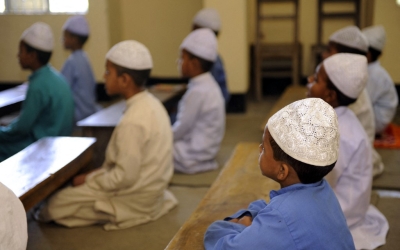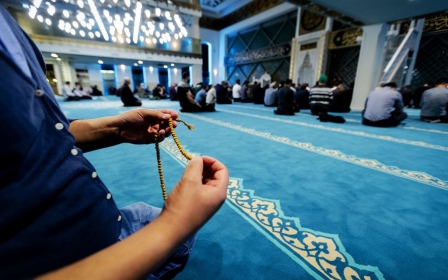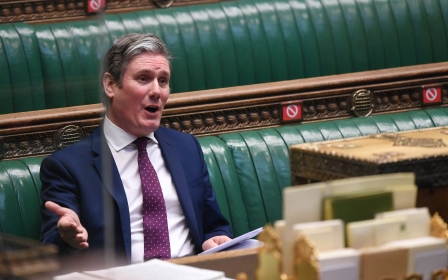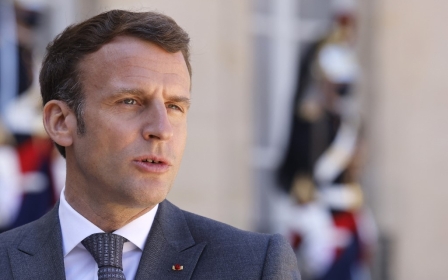Biden urged to appoint envoy to counter Islamophobia 'epidemic'
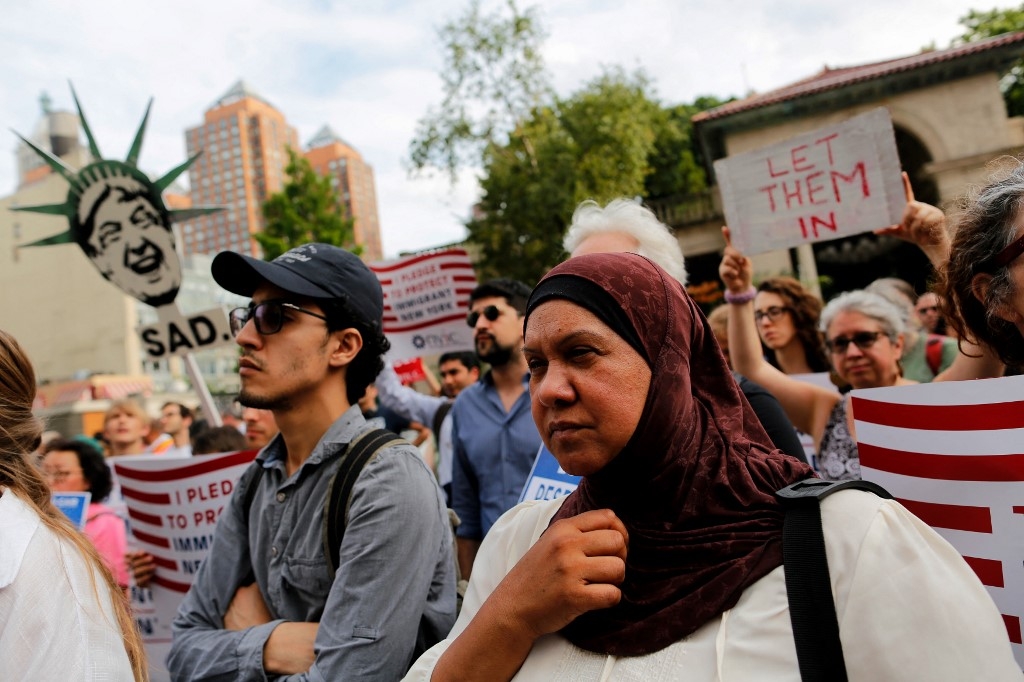
A coalition of Muslim organisations in the US is calling on the administration of President Joe Biden to create an envoy that would monitor and combat Islamophobia, which the groups say plays an interconnected threat to Muslims around the globe.
In a letter sent to the president, the US Council of Muslim Organisations (USCMO) led more than 80 Muslim groups in calling for the creation of the position, highlighting the current role of the administration's antisemitism envoy as a sign that an office for anti-Muslim sentiment was possible.
"From here in America to France to China to Myanmar to India, anti-Muslim bigotry plays an interconnected threat to Muslims worldwide," the letter read.
The letter, which was sent to the White House on 29 January, was initially delivered privately. However, after months of not receiving a response or acknowledgment from the administration, the USCMO said it is now taking the call public.
Oussama Jammal, the USCMO's secretary-general, told Middle East Eye that, similar to antisemitism, Islamophobia is on the rise and "becoming so dangerous to the lives of many Muslims, not just in the United States, but around the world".
"We want for there to be this special envoy to monitor and combat Islamophobia, at the State Department alongside the other office for antisemitism.
"It is only a fair request because we both face hatred and danger in this country and outside."
When asked about whether there were plans to create an Islamophobia envoy, the State Department told Middle East Eye that it "cannot speak to any potential nominations", and that its office of religious freedom tracked anti-Muslim incidents around the world.
"The Biden administration remains fully committed to promoting universal respect for freedom of religion or belief for all, including for members of Muslim communities worldwide," a department spokesperson said.
The spokesperson said the department regularly spoke out "to denounce discrimination and abuses perpetrated against members of Muslim communities, most notably in Burma and China".
The White House did not respond to Middle East Eye's request for comment.
The letter was first reported by USA Today.
Islamophobia at 'epidemic proportions'
In March, Ahmed Shaheed, the UN special rapporteur on religious freedom, reported that levels of Islamophobia around the world had reached "epidemic proportions".
Shaheed said he used the word "epidemic" to describe Islamophobia today because of the rise of groups and movements espousing anti-Muslim sentiment.
'If it's merely an envoy with an under-resourced office, then it would be more of a symbolic gesture and a public relations action'
- Sahar Aziz, Rutgers University
"And what's really changed, I think is the emergence of very powerful leaders in powerful democracies, which have been openly hostile towards Muslims," Shaheed told MEE.
The UN expert said it was an obligation upon a state to respond to a call from the Muslim community to combat Islamophobia, but ultimately it was up to the US government to decide how it would do so.
"There's a large amount of Islamophobia that goes undetected, which of course is very corrosive for communities and affects individuals tremendously," he said.
"A call to have that monitored has to be responded to positively. A call to have that combated also is an obligation upon states."
Anti-Muslim incidents in the US soared under former President Donald Trump, but although the number of incidents has since reduced, there still remains a general climate of Islamophobia that is "very worrisome", Caleb Elfenbein, an associate professor of history and religious studies at Grinnell College, told MEE.
"There is persistent anti-Muslim sentiment in the United States, based on my own data collection, incidences of overt and public anti-Muslim activity, and I would put in this open everyday harassment and violence," Elfenbein said.
A 2019 poll conducted by the Pew Research Center found 82 percent of Americans believed Muslims faced some form of discrimination.
Over the past five years, roughly 60 percent of Muslims have experienced some form of discrimination based on their faith, according to data compiled by the Institute for Social Policy and Understanding (ISPU).
The Southern Poverty Law Center reported there were 72 active anti-Muslim groups in the US in 2020.
Lifting the Muslim ban 'not enough'
In addition to calling for an Islamophobia envoy, the letter also says that the administration could combat the issue by ending national security overreach, issuing a more progressive foreign policy, and banning discriminatory immigration practices.
While it is unclear if the administration has received the letter, Biden has been applauded by some rights groups for revoking the Trump-era "Muslim ban". The president has also condemned violence against Muslim Americans.
"Muslim Americans continue to be targeted by bullying, bigotry and hate crimes," he said in a statement at the beginning of the month of Ramadan.
"This prejudice and these attacks are wrong. They are unacceptable. And they must stop."
While commending Biden for revoking the travel ban, Jammal noted "it takes more than a signature on an executive order" to combat the extent of anti-Muslim hate in the US.
Sahar Aziz, a law professor at Rutgers University and author of the book The Racial Muslim, said she welcomed the idea of an Islamophobia envoy. However, the position would depend largely on how well-resourced it was.
"If it's merely an envoy with an under-resourced office, then it would be more of a symbolic gesture and a public relations action," she said.
Aziz noted the past three US administrations had continued Islamophobic practices, and while Biden does not seem to be overtly Islamophobic, he needs to do more to tackle the problem.
The law professor said the US president needed to be proactive in condemning anti-Muslim incidents, rather than remaining silent, and should also include Islamophobia in his civil rights agenda.
"If he doesn't do those two things, then the best we can hope for is that levels of Islamophobia remain the same, which are quite high thanks to four years of very aggressive Islamophobia officiated by the Trump administration," Aziz said.
"And the worst-case scenario is that it continues to fester and get worse, especially within Middle America and southern parts of America, where hate groups have a large following."
Middle East Eye delivers independent and unrivalled coverage and analysis of the Middle East, North Africa and beyond. To learn more about republishing this content and the associated fees, please fill out this form. More about MEE can be found here.


